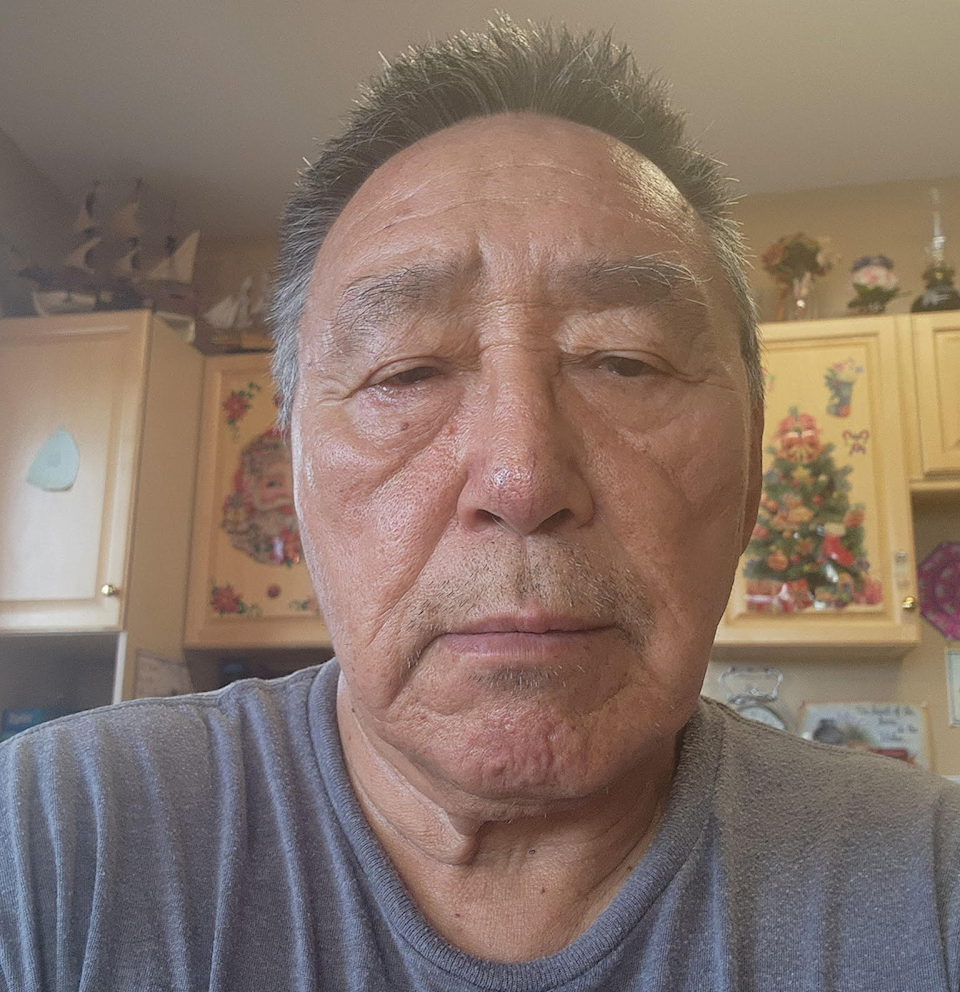Top Stories
Iqaluit Elder Reflects on Truth and Reconciliation’s Impact

As Canada observes the National Day for Truth and Reconciliation on September 30, Iqaluit elder Ainiak Korgak shares his insights on the historical narrative that has shaped Indigenous experiences in the country. Korgak emphasizes the need to recognize the contributions and struggles of Indigenous people, who have often been excluded from mainstream historical accounts.
Korgak highlights how Canadian history textbooks focus on the role of fur traders in nation-building, neglecting the reality that these developments occurred at the expense of Indigenous people. He asserts that the narrative has been dominated by the perspective of the Hudson’s Bay Company, which he claims engaged in dishonest dealings with Indigenous fur traders.
For generations, Indigenous stories were largely absent from educational curricula, a reflection of the marginalization experienced by these communities. Korgak poignantly acknowledges, “We were not recognized in this country as citizens, legal citizens, because we couldn’t vote. My parents couldn’t vote.” It was not until 1960 that Inuit, First Nations, and Métis people gained the right to vote in Canada, a significant milestone in the long struggle for equality.
Korgak views the National Day for Truth and Reconciliation, also known as Orange Shirt Day, as an opportunity to reflect on the painful legacy of the residential school system and the treatment of Indigenous peoples by both the church and the Canadian government. He believes that sharing silenced Indigenous stories is crucial for spreading awareness and fostering understanding.
Yet, Korgak stresses that reconciliation requires active participation from non-Indigenous Canadians. “In order to move on forward in a more positive way, you have to consider the idea that the people that wronged you have to be part of the process of healing,” he explains.
Personal Reflections on Education and Language
Born in 1949 along Frobisher Bay, approximately 193 km from Iqaluit, Korgak moved to the city with his family when he was five years old. He attended Sir Martin Frobisher Federal Day School, which allowed students to return home after classes, unlike residential schools. However, the experience was still marked by significant challenges.
On his first day at school, Korgak knew only the words “yes” and “no” in English. He recalls the difficulty of being unable to speak his native Inuktitut except during recess or at home. “When the teacher started asking me questions, I said, ‘yes,’ and after a while, she would ask another question. I had no idea what that person was saying,” he remembers. This language barrier left him feeling isolated and confused in the classroom.
Students were permitted to speak only when raising their hands to an English or French-speaking teacher. Korgak reflects on the restrictive environment, stating, “I don’t remember at all when the class was allowed to interact and when the students were allowed to interact with each other.” Although he experienced fortunate circumstances that spared him from severe punishment, he witnessed classmates facing harsh disciplinary measures.
Despite the challenges he faced, Korgak eventually developed a love for reading, something he attributes to his school experience. His reflections resonate with a broader historical context in Canada, where from 1860 to 1997, 699 federal day schools operated with the explicit goal of eradicating the language and culture of Indigenous children, according to Library and Archives Canada. In the territories, 75 federal day schools were established, primarily between 1940 and 1969, impacting as many as 210,000 Indigenous children from 1923 to 1994.
These educational institutions were managed collaboratively by the federal government and various churches, including Roman Catholic, Anglican, United, and Presbyterian denominations. In 2019, the federal government announced a $200 million legacy fund as part of a $1.47 billion class-action lawsuit settled with survivors of the federal day school system.
Korgak’s reflections on his educational journey highlight the complexities of navigating a system designed to suppress Indigenous identity. “When we were going to school, we never really thought about the things that were done and said because we all thought that was part of the school system,” he recalls, illustrating the internalization of systemic oppression within the educational framework.
As Canada continues to grapple with its history and the ongoing effects of colonialism, stories like Korgak’s serve as vital reminders of the importance of truth and reconciliation. The path forward, according to Korgak, lies in acknowledging past injustices and fostering dialogue that includes all Canadians in the healing process.
-

 Science2 months ago
Science2 months agoToyoake City Proposes Daily Two-Hour Smartphone Use Limit
-

 Health2 months ago
Health2 months agoB.C. Review Reveals Urgent Need for Rare-Disease Drug Reforms
-

 Top Stories2 months ago
Top Stories2 months agoPedestrian Fatally Injured in Esquimalt Collision on August 14
-

 Technology2 months ago
Technology2 months agoDark Adventure Game “Bye Sweet Carole” Set for October Release
-

 World2 months ago
World2 months agoJimmy Lai’s Defense Challenges Charges Under National Security Law
-

 Technology2 months ago
Technology2 months agoKonami Revives Iconic Metal Gear Solid Delta Ahead of Release
-

 Technology2 months ago
Technology2 months agoSnapmaker U1 Color 3D Printer Redefines Speed and Sustainability
-

 Technology2 months ago
Technology2 months agoAION Folding Knife: Redefining EDC Design with Premium Materials
-

 Technology2 months ago
Technology2 months agoSolve Today’s Wordle Challenge: Hints and Answer for August 19
-

 Business2 months ago
Business2 months agoGordon Murray Automotive Unveils S1 LM and Le Mans GTR at Monterey
-

 Lifestyle2 months ago
Lifestyle2 months agoVictoria’s Pop-Up Shop Shines Light on B.C.’s Wolf Cull
-

 Technology2 months ago
Technology2 months agoApple Expands Self-Service Repair Program to Canada









